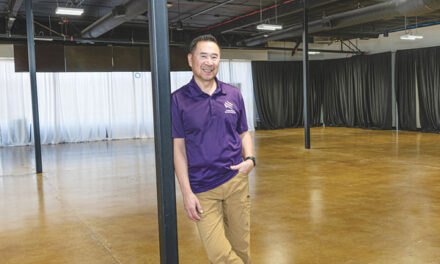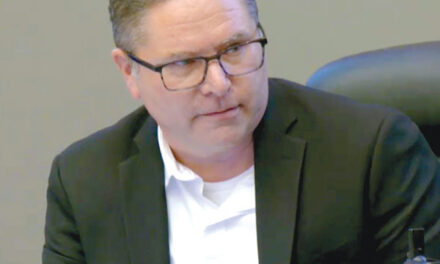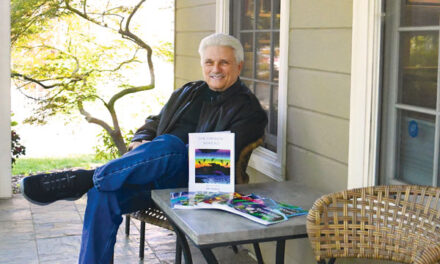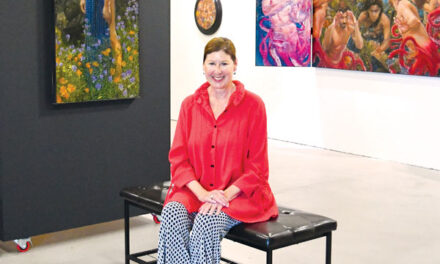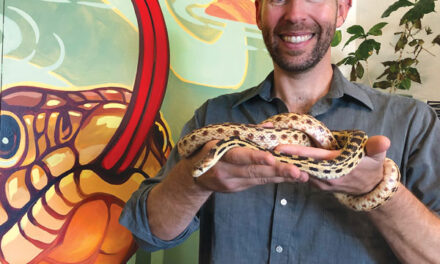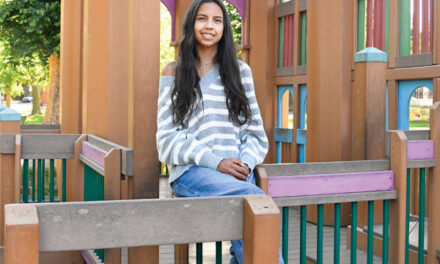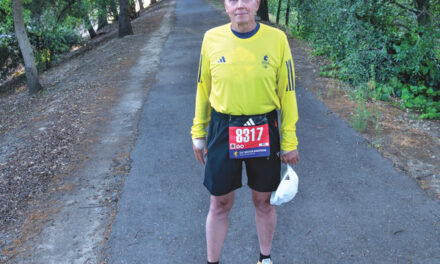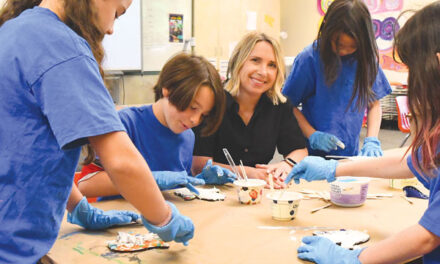Janice Walth is a trailblazer. As a world champion archer in the visually impaired category, she worked more than a decade to create a competitive pathway for herself and others.
Walth, 64, was born to a Southern California family of four children. Two siblings were afflicted with retinitis pigmentosa, a progressive eye disease.
“My brother and I were both born legally blind, but we each had our own unique vision challenges,” Walth says.
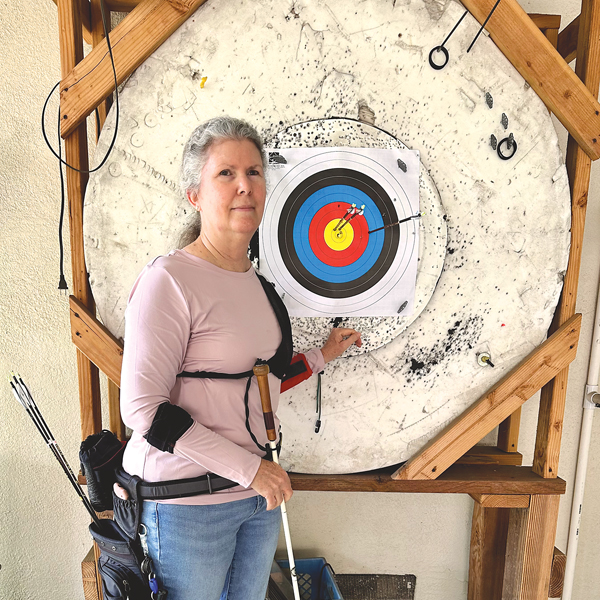
Her parents wanted the kids to attend public schools and moved to a district that offered the best education. “I learned to read with large print because I had more vision, while my brother learned by braille,” she says. “He’s now a practicing attorney and learned entirely using braille. Looking back, I wish I had learned through braille as he progressed far quicker in reading than I did.”
Walth says she and her brother were blessed by an inspiring teacher who followed them until they graduated from high school.
“I struggled with reading, listening to records, then cassettes and then reel-to-reel recorders with books on tape,” she says. “I was always fairly determined to read, especially since my brother excelled at it. But the technological changes in recent decades have been purely miraculous for the blind.”
Her first career was in medical transcription, turning doctors’ recordings into printed notes. She needed special equipment but soon managed a department of transcribers.
Walth moved to Lodi in 2002, after marrying her husband Courtney, a tile contractor. They settled into a new home. She attended San Joaquin Delta College to learn new skills and was attracted to adaptive technology.
“I was blessed to be mentored by Ted Wattenberg, a wonderful technology instructor at Delta who later hired me as an aide,” Walth says. The teacher encouraged her to earn a bachelor’s degree from Charter Oak State College in Connecticut via distance learning. Wattenberg helped Walth create her own curriculum in adaptive technology and find local experts to teach her specific subjects.
“Courtney competed in fencing when we first were married. And then a friend asked him to learn archery. I always joined him at local archery competitions, bringing my laptop to complete my schoolwork,” Walth says. “One day I just was curious what it was like to pull the bow. At the time, I still had some central vision left. And I loved it!”
Courtney helped her adapt to the sport by customizing equipment. At the time, low-vision sport archery was practiced only in England. “So, we asked if I could just shoot in my own category at local and state tournaments. Gratefully, they always said yes.”
If her husband was busy, Walth asked her mother to “spot” for her, helping set up and score where the arrows landed. “And at age 76, she became my regular competition spotter up until she was age 90,” she says.
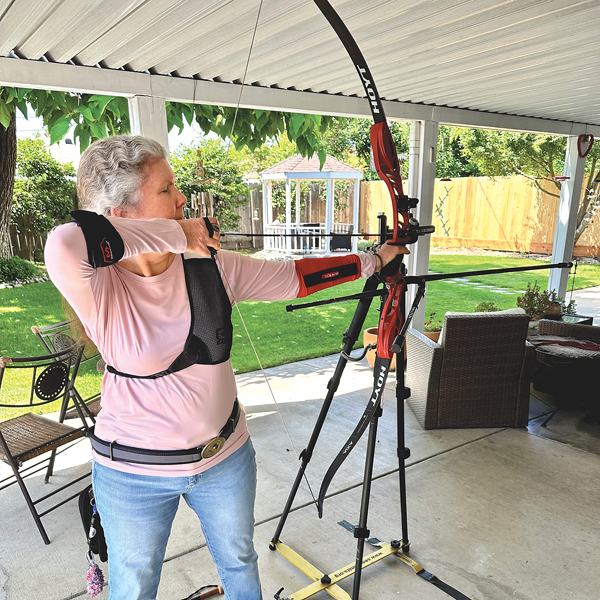
Paralympics includes archery for athletes with physical impairments. The California Board of Archers finally agreed to include a visually impaired category—the first state to do so.
When she wanted to compete in the U.S. National Archery competition in 2006, they created a visually impaired category at her request. She connected with other visually impaired archers, many from the U.K. and beyond.
“We created a Facebook page, Skype with each other, and we meet in person at international events,” she says. “But while Paralympic athletes are supported with funding, visually impaired archers need to fund their own training and travel.”
At the 2007 IPC Archery Championship in South Korea, she earned a silver medal. She won the gold at the 2015 World Archery competition in Germany. The pandemic set back international competitions, but Walth hopes to compete again. She practices daily in her backyard and at longer distance in a nearby vineyard.
Walth became a board member for Society for the Blind in 2013. “I love the mission of the organization and the people,” says Walth, who pre-pandemic spent hours on public transportation to get from Lodi to society offices for meetings. Now they meet via Zoom.
“Since joining our board of directors in 2013, Janice has made significant contributions. She served as president of the board from 2019–2020, overseeing the build-out of the Carl R. Otto Annex, which created 5,000 square feet of multi-purpose training space, and the successful conclusion of our $4 million Vision 2020 Campaign,” says Shari Roeseler, executive director.
Walth leads archery workshops for the society and participates in a service club called Sisters of the White Cane. “We raise money to support visually impaired graduates throughout our county,” she says. “Our mission is to show the community that just because you’ve lost sight doesn’t mean you can’t be a contributing member of your community.”
For information on Society for the Blind, call (916) 452-8271 or visit societyfortheblind.org.
Cecily Hastings can be reached at publisher@insidepublications.com. Follow us on Facebook and Instagram: @insidesacramento.



